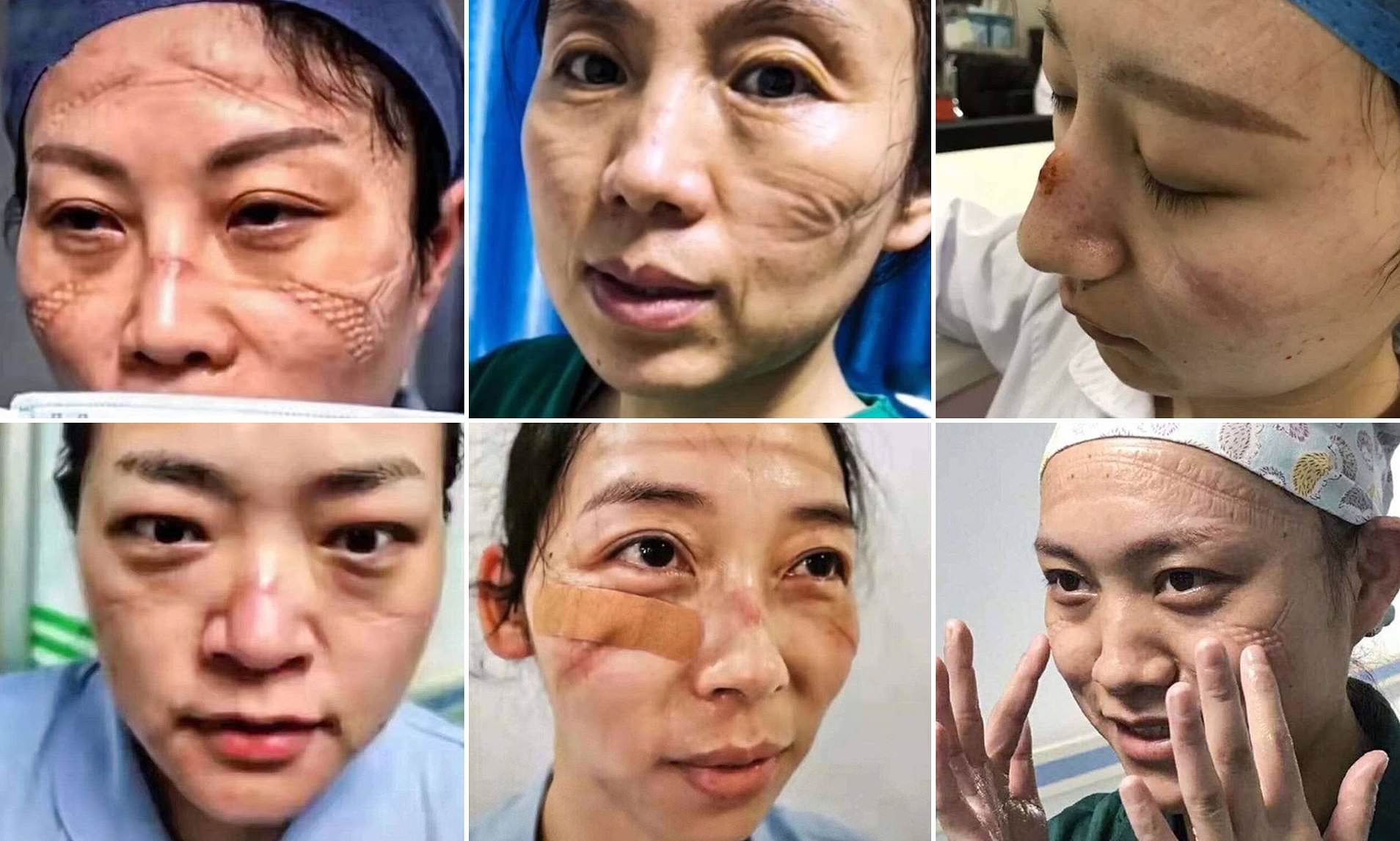Beastly Rape And Murder Of A Female Child By A Migrant Worker: A Shocking Incident In Literate Kerala
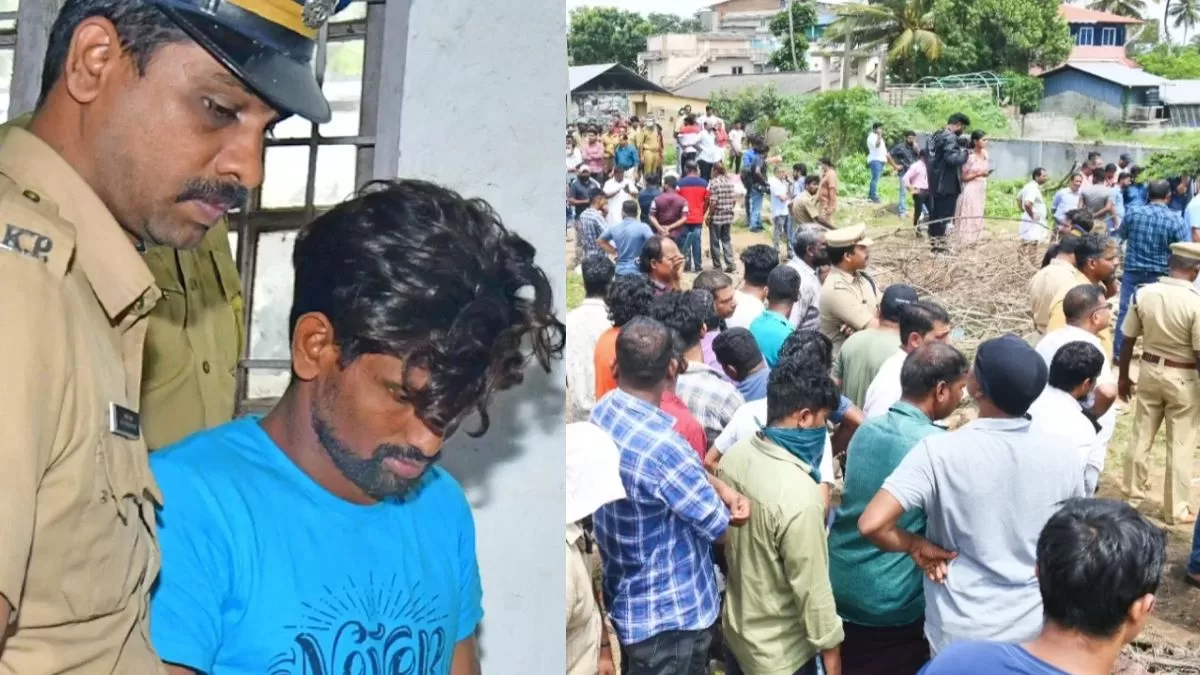
By M P Suresh
The brutal rape and strangulation to death of a five-year-old girl child Nandini (name changed) in broad daylight by Asfaq Alam, a migrant worker from Bihar has sent shock waves among the people of Kerala and those especially in and around Aluva Taluk in Ernakulam district. The child murdered is the daughter of a migrant couple from Bishambharpur, Bihar and living in a rented house in Aluva and incidentally, the accused is also from Bihar staying in the same premises. The incident has exposed the popular perceptions that there are among the migrant population in the State those having criminal passion, considering a spate of incidents during the last five years.
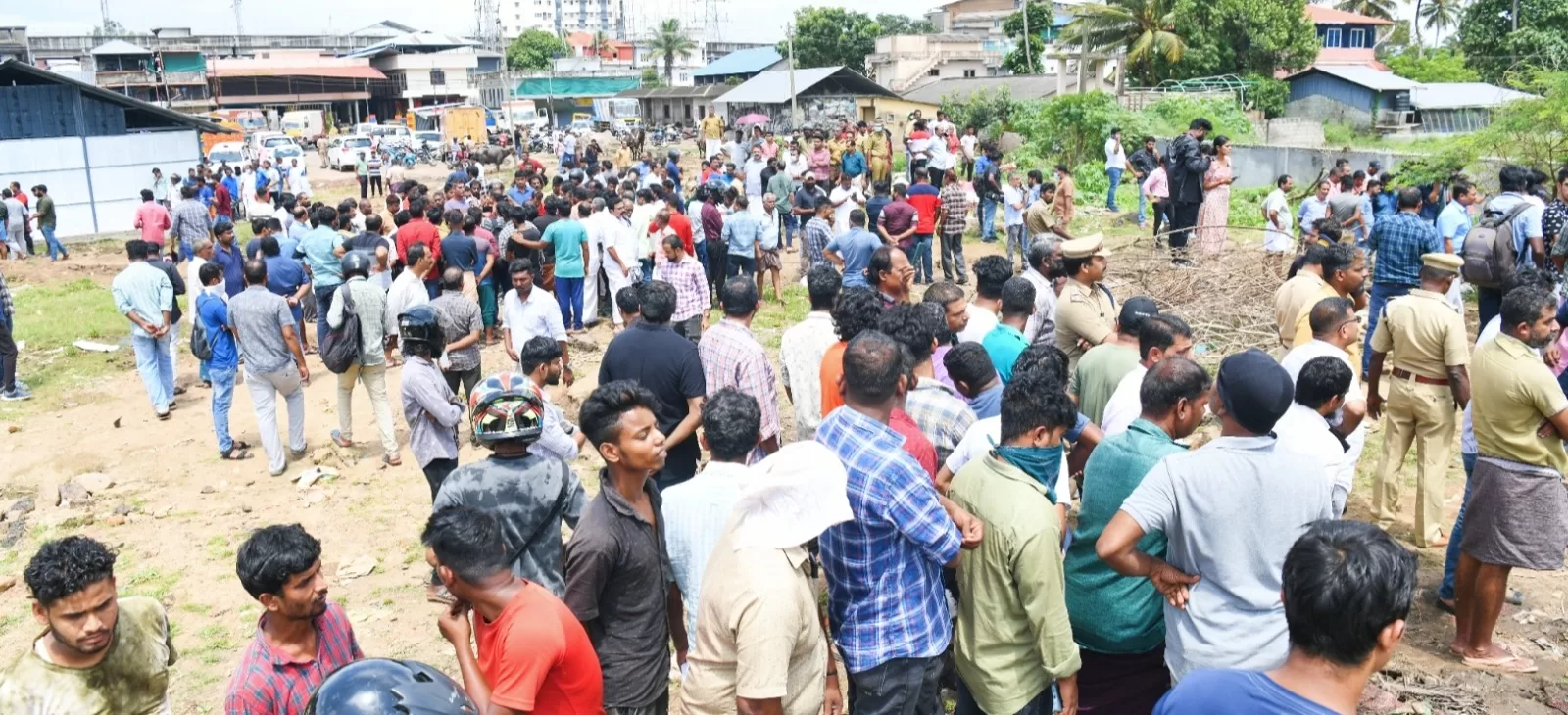
The crime spot chosen by the accused was an abandoned local market backyard in Aluva. The child was kidnapped promising to get her sweets and later taken to a nearby shop and offered her a packet of juice before committing the crime.
The murder victim, Nandini (name changed) has seven-year-old elder sister. The younger sister is four-years old and her brother is two years old. She was studying in the first standard in a school at Thaikkattukkara, Aluva. Since her family was financially struggling the victim’s mother started going to work recently. At the time of the incident, both the parents were away at work.
Many residents expressed doubt over the effectiveness of the law and order system and cried to the police to hand over the accused to them and they will give him the punishment that can shock such criminals. A woman said “Give him to us and we will make an example out of him. We don’t want to see him enjoying his life in prison”. Another woman said that the law-and-order mechanism should make an example out of the accused.
In order to investigate into the criminal antecedents of the accused, a Special Investigation Team has been deputed to Bihar and Delhi since he had a case of molesting a minor in Delhi in 2018 against him.
The backlash following the alleged sexual abuse and murder is being felt by the migrant community across Ernakulam district, and also in other parts of Kerala. The local community is trying to put the aftershock of the murder behind and normalcy is slowly returning.
Poor Upkeep of Aluva Market area: A Chosen Spot for Crime by the Murderer
The sexual assault and murder of Nandini (name changed) near the Aluva Market is said to be an unsafe place and the accused has selectively chosen the spot at a time when the market activity is less. The wild growing weeds and waste dumps in the spot turned out to be a perfect place for him to commit the murder and dump the body in the marshes. Lack of maintenance of the area by providing proper lighting by Aluva Municipality despite being brought to the attention of the authorities went unheeded despite the hub is of anti-social activity of migrant workers at night to consume liquor and drugs but no action coming up from the enforcement authorities. Both the ruling and the opposition factions failed to take timely action; instead they were keenly involved in the struggle to capture power by balancing act among their Councillors in the Municipal Council.
More vulnerable for migrant crimes are Females in Kerala
The rising crime rate with many crimes being attributed to migrant workers especially those from the poorer north-eastern states like Bihar, Assam, Jharkhand and West Bengal.
Ernakulam which has the highest number of migrant workers in Kerala tops in the number of crimes committed by them. Over the past five years as many as 3650 cases were registered in Kerala by the police involving guest labourers. The numbers rose consistently since 2016, except 2020 when Covid-19 began and many of them returned home. The high stake of cases against guest workers in 2019 was 978 but in 2020 when a majority of the labourers left the State, the number of criminal cases dropped to 484. During the Covid lockdown in the State around three lakh went back home but many of them returned to Kerala in batches.
The Excise and police officers affirm migrants on their return from native places carry banned tobacco products like pan masala and narcotic substances, and are also carriers of ganja. Though these items are brought mostly for their own use, some of the items find its way into the local market and make some money.
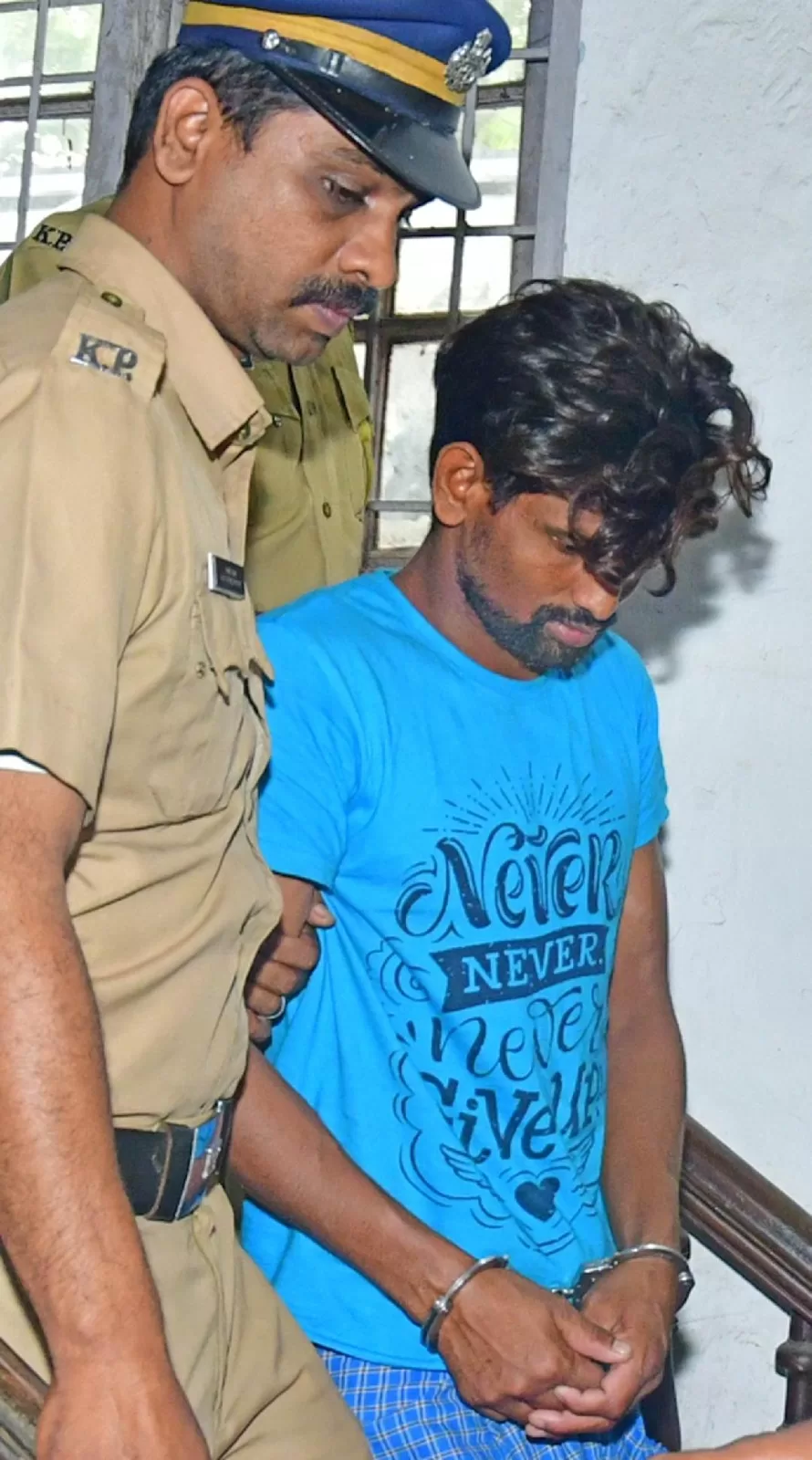
Most of the heinous crimes are committed against opposite gender, and the recent gruesome murder of the child has rekindled the debate on migrant workers in the State, and Government initiating steps to harden the rules governing migrants. The rape and murder of Jisha, a law student in Ernakulam at her residence in 2016 by Amirul Islam from Assam, and another Assam migrant Umar Ali, murdered a 42-year-old woman in Perumbavoor, Ernakulam. Last year a 60-year-old housewife was murdered in Thiruvananthapuram by Adam Ali, a migrant worker from West Bengal.
The common thread in most of the cases is that the perpetrator was a migrant worker residing in the same community as the victim
Labour Migration to Kerala and the State’s Economy
Kerala relies heavily on migrant workers and the recent spike in the number of crimes committed by them is creating a jittery here.
The economy of the State mainly hinges on the 3.5 million inter-state migrant workers and the number makes up close to a tenth of the resident population. The significantly higher remuneration for a daily wage worker apart, safety of women workers, rapid urbanization, structural changes in the economy of the State, better opportunities for skill development, and labour mobility continue to be the prime factor of long distance in-migration of unskilled workers into Kerala. On the other hand the origin factors for migration are mostly poverty, agriculture distress, natural disasters, and internal clashes on basis of caste, poor healthcare and education facilities. With the introduction of long distance trains from distant States in North, North East and East Indian States, terminating in Kerala, in-migration from these places increased. Majority of the migrant labourers who were unskilled, now acquired skills in jobs from here like masonry, carpentry, plumbing, painting, marble and tile works, brick kilns and earns handsome daily wages. Other than Ernakulam, sizeable number of migrant workers are found in Palakkad, Thiruvananthapuram, Kozhikode, Kollam and Malapuram as well. Majority of them are coming under the category of footloose labour without any contract with the employer. The epicenter of their workforce in Aluva, is in Perumbavoor at where more than 300 plywood factories are established.
According to a study based on a Survey of the Domestic Migrant Labour coming into and leaving Kerala, the remittances of migrant workers in Kerala to their home states are over Rs 17500 crores which is equivalent to 4 per cent of Kerala’s Gross Domestic Product By rough estimate the number of migrant workers in Kerala was almost one-tenth of that of the local population. The migrants unfortunately include those migrated from Bangladesh owing to historical and geographical reasons prevalent in North East regions.
The interesting fact is that the migrant worker population in Kerala increases by 2.35 lakh people every year and by 2030 projected to touch 5.6 million. Today, they have become a significant force to reckon with in the State and the trading community here can hardly survive without their helping hand. With Kerala experiencing an ageing population and with the tendency of youth migrating abroad, the void for the shortage of workers in the State was fulfilled to a great extent by the migrant workers, and remains a strong segment to the State’s economy.
The emerging changes in the migrant landscape in Kerala and its impact on the social and economic fabric would be interesting to watch out in the coming years.
Welfare Measures for Migrant Workers
Kerala has been a front- runner among the states in India, introducing a series of social security schemes and have been successful in extending to migrants as well. Initiatives like the Awas Health and accident insurance scheme, the migrant welfare scheme, the Apna Ghar residential scheme, and Anyamalayalam, a language proficiency programme for migrant workers for Malayalam and Hindi through Kerala Literacy Mission, are in place to ensure labour rights, social justice, social cohesion, and confidence building. The migrant-friendly environment in Kerala has attracted a substantial influx of migrants from other states due to the series of initiatives of the Kerala government.
Recently, the District administration has initiated steps to start a Creche. Though majority of the migrants prefer Anganwadis for their children a large number of the children of migrant workers are also enrolled in government schools.
Kerala Government is also conducting health screening among migrant labourers for communicable diseases and other non-communicable diseases in proportion to the uncontrollable inflow of migrant workers. Unsafe practices and poor adherence to medical counseling exacerbate and lead to communicable diseases like HIV+ cases among them, though rarely. Hence, the State under the aegis of Kerala State Aids Control Society started an initiative Migrant Suraksha Project.
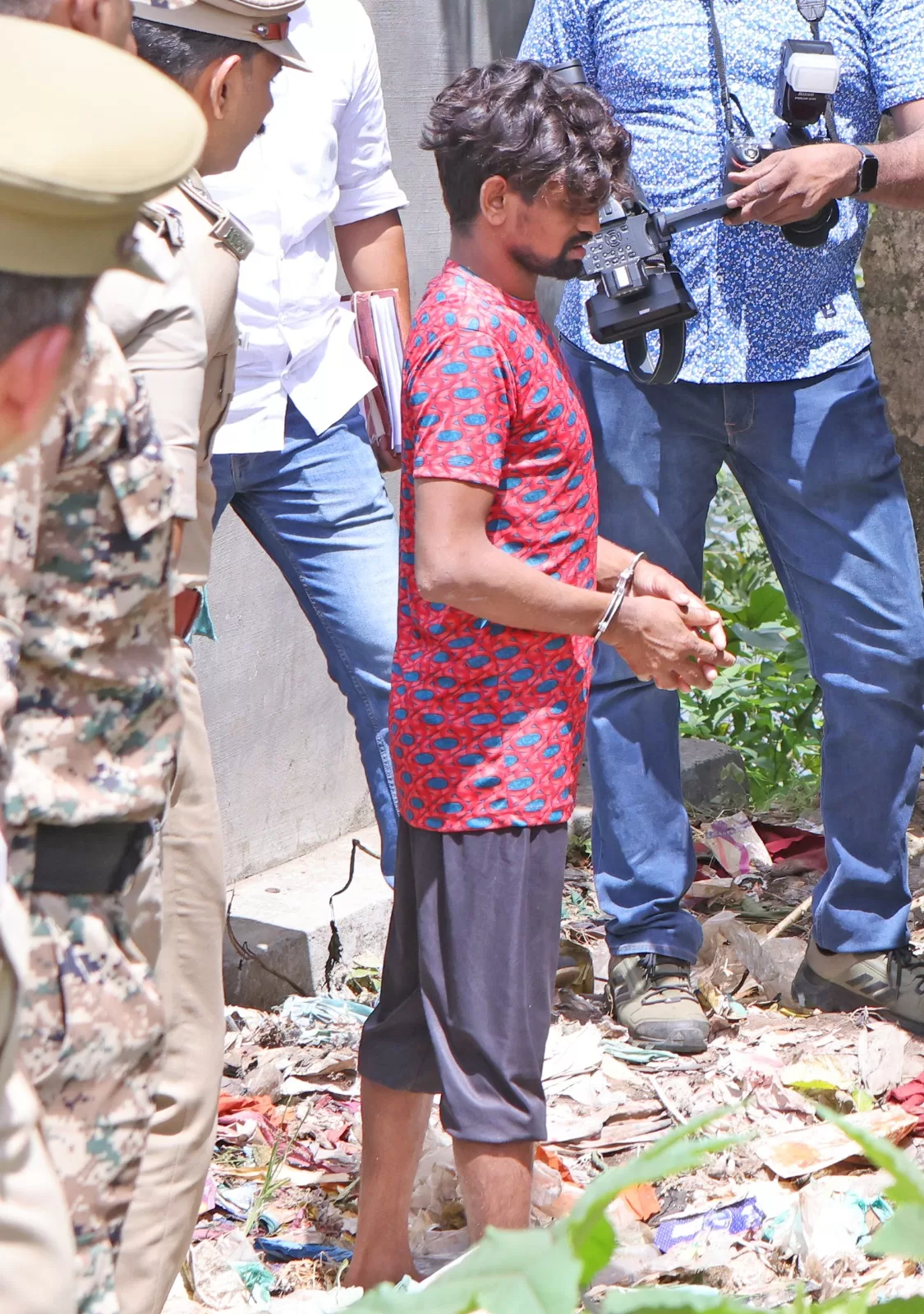
Registration of Migrant Workers by Rural Police
The Rural Police in Ernakulam have already started collecting the details to create a database within its 34 police stations across all five rural sub divisions and that includes criminal antecedents also. The employers of these migrant workers have also been asked to ensure participation of all migrant workers in the process.
The current initiative of the Rural Police has become a precursor for the Labour Department to seriously undertake a massive registration process for guest workers in the State through a portal for the registration athidhi. The primary purpose of the collection of data would be to ensure them social security, provide Unique Identification through registration for all benefits including Awas Insurance. The enrolling officer would have to complete the process after due verification of the personal information provided by the worker before allotting a unique ID.
Some Flip Side of Migrants in Kerala
The flip side is that given their work and sordid living conditions, worsening sanitation and sewage, their mental and physical equilibrium is in a distressed state. Sexual starvation due to absence of their family partner turns most of them to commit crime out of frustration. Several of them resort to intoxication and Kerala’s liberal liquor policy entices them. Besides, many of them are single, and few leave their families in their native place and lead a lonely life detached from family. Only ten percent of the migrant workers are in Kerala with their families engaged in jobs and taking care of the education of their children.
====================
Exclusive Interview with District Police Chief (Rural) Mr Vivek Kumar IPS, who pioneered the investigation procedure. The unassuming and polite officer interacts and describes the incident with a confident outcome of stringent punishment to the accused :-
- Opposition political parties are alleging that the police had failed in the incident and so too the government system. Being the leader of the investigation team in the district, how would you substantiate your version?
I have no doubt that that the police teams were successful in nabbing the culprit Asafaq Alam within three hours of getting the complaint. It was around 7.10 on Friday(August 04, 2023) night the victim’s mother lodged complaint with the Aluva Police and even before an FIR was registered, we deployed three teams to track the accused to bus station, railway station and town. It was around 8 night we registered an FIR and collected the CCTV footage of the accused and sent it to informers in Aluva and other police stations. On receiving the information from several sources that they saw the accused in Aluva, we zeroed him by 10night. Being in an inebriated state, and behaving abnormally we could not interrogate to elicit further information, but we never stopped the search for the child and continued the entire night. Only on the next morning he revealed the murder and it became a shocker to the police. On further questioning he admitted to raping the child and murdering her and we took him to the site of crime. He further said that only after committing the grisly crime, he took to intoxication.
There was no laxity on the part of police and we are on the right track till now. Aluva East police officials did excellent job in tracking the accused and the spot of the incident, close to Aluva Market.
2. What are the important sections included in the charge sheet against the accused?
We have 60 days to file a charge sheet but we are trying to file a foolproof final report so that a trial can start soon. At present the accused is booked under IPC Section 302(murder), 376 (rape) and 363 (kidnapping), 378, 377 and relevant sections of the Protection of Children from Sexual Offences (POCSO) Act. We would also include other sections including those for destruction of evidence.
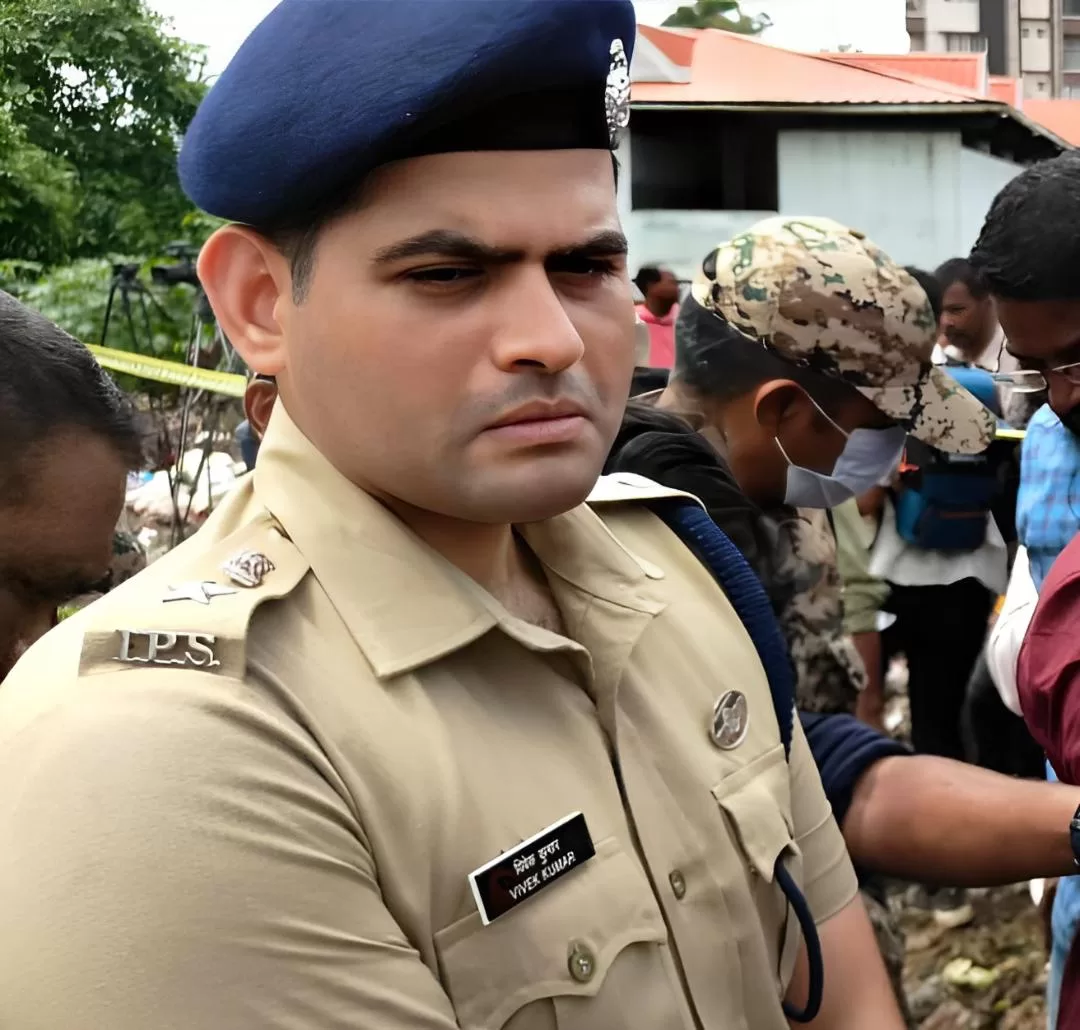
3. What is the maximum punishment one could envisage for the accused for this gruesome murder?
We have a strong base to prove scientifically the evidence against the accused which should lead to capital punishment. There is no possibility of him escaping from the clutches of law as we feel that stringent punishment against the accused should set an example that nobody dares to do such an act again. The government and the police are on the right track to ensure the highest punishment to the accused.
4. Aluva and its suburbs have become the epicentre of migrant labourers in Ernakulam District, which is considered to have the highest number of migrants’ workers inside the State. Do you have any mechanism to assess their antecedents?
The police have no exclusive mechanism as such but we along with other departments like Labour Department undertake visits to their camps. Majority of them are floating workers and single people with families left in their native place. But there are families too, who had migrated to Kerala from distant States, like the family of killed child. There may be some migrants who have a passion for crimes like theft, drug trafficking; drug addiction and even murder of the locals bringing disrepute and this small criminal population among migrants bring disrepute to the entire cluster though there is no empirical evidence in cases registered in rural Ernakulam on a daily basis.
5. What would you like to say about strengthening the screening of migrants entering Kerala?
The Government of Kerala is proposing to bring in a fresh piece of legislation for the regulation of migrant labourers in Kerala including a mobile App Athidhi for the registration of migrant labourers. The new law of mandatory registration may be an effective mechanism and other than the police, the Labour Department has a decisive role to play in the whole enforcement dyad.
=================



